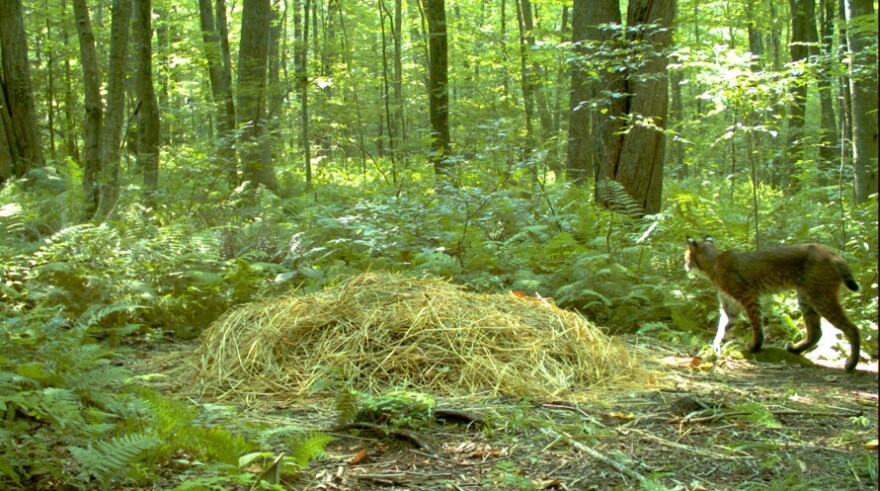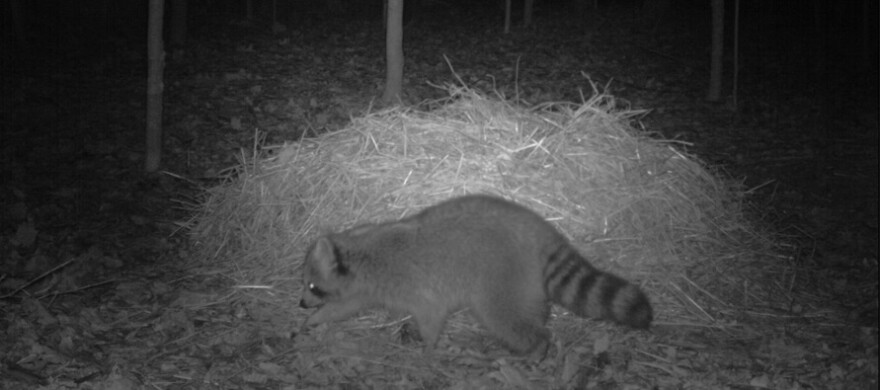The project aims to learn how compost piles alter local ecology, and how scavengers share the potential food source.
Researchers at Trinity College are snapping pictures of animals at compost piles as part of an ongoing biology project. They've been getting lots of pictures, and they're now hoping a new group can help analyze them: veterans.
Scott Smedley is a professor in the biology department at Trinity. When he said there are lots of pictures ... he meant it. "We now have over a half a million images coming off our cameras," he said. Those cameras are heat and motion sensitive and they're set up around compost piles in eastern Connecticut.
When an animal moves, a picture is snapped and recorded. Smedley is trying to figure out how compost piles alter local ecology and how a community of scavengers might share that potential food source. "That's the crux of our situation here. We have exceeded our capacity for what we can analyze here in our lab. So we have turned to citizen science," he said.

So far, those citizen scientists have been students and teachers, analyzing the thousands of photographs and identifying the animals in or around a compost pile. Smedley is now reaching out to another population: veterans.
"We think that veterans have extremely well developed observational skills, compared to the public at large, due to their military training," Smedley said. "Many of these images are tough to analyze. There could be a pile of crows on that and you need to figure out how many are in there. There could be somebody hidden behind that pile, and you're not sure what it is, so it does take a careful observer to do a good job at this."

Kate Marinchak, a psychologist working on the project, is pre-screening veterans to make sure that analyzing images -- particularly infrared photos taken at night -- won't trigger PTSD.
"The skills that we're asking them to use are the same skills that were honed and practiced under very different conditions: combat conditions; dangerous conditions," Marinchak said. "Infrared images or compost piles can trigger memories of looking for very different things in a combat zone. We want to make sure that we're not exposing them to something that's going to ultimately upset and distress and harm them."
Smedley said he's looking for 20 more veterans to participate before the end of September. He hopes that giving them a connection to the natural world will ease their transition back to civilian life.
If you're a veteran looking for more information about the project, call (860) 297-5154, email vet-citizenscience@trincoll.edu, or visit Wildlife CSI (Compost Scene Investigation).





